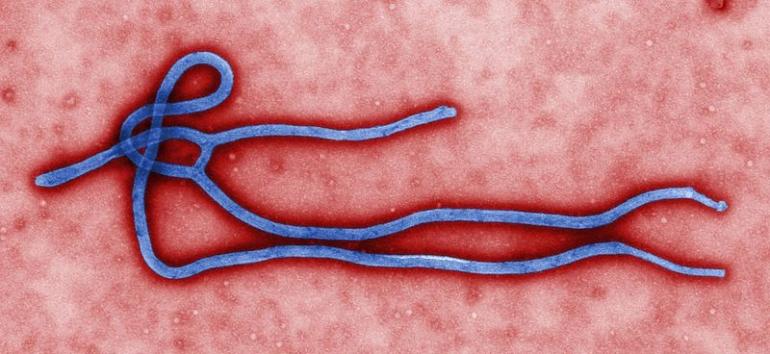The Ebola Virus: What You Need to Know
October 3, 2014
Ebola, currently one of the world’s largest topics today, that no one knows how to solve. The 2014 Ebola Outbreak was first noticed in Western Africa in December of 2013, with countries including: Lagos, Port Harcourt, and Nigeria. Recently, the death tolls were included at thousands of innocent Africans, along with hundreds of health workers sent in to try to control the deadly virus. This viral disease can make someone seriously ill, and even kill them.
The Ebola Virus Disease (EVD) was first found in West Africa in countries including Nigeria, and Guinea. Thousands of people have been killed from the disease, and thousands more have been infected -including a few Americans that were risking their own lives to help the African people with the outbreak.
On September 16th, 2014, it was noted by the World Health Organization (WHO) that an estimated 2,400 Africans have been killed by the virus, and nearly 5,000 were suspected to have Ebola. Hundreds of American health workers have been infected, and hundreds more have been killed by the EVD.
Multiple facts about the EVD have been provided by many sources, including the WHO. One fact is that the EVD has a 90% rate of fatality. Ebola also occurs in the Central/Western African remote villages; mainly near tropical rain forests. The theory is that fruit bats are the “natural hosts” of the EVD. Unfortunately there has been no vaccine or treatment available for use in Africa.
Mr. Lawler, the Living and Global Environment science teacher here at Weedsport took the time to answer a few questions for us about how the Ebola is not only affecting Africa, but the entire world as well.
Johnny Green: How is the Ebola Virus affecting us right now?
Mr. Lawler: Well, when you say ‘us’ as far as the world is concerned, with any biological virus, if you don’t control it immediately… it’s going to spread very rapidly, and very, very quickly, especially with the Ebola Virus, and not really knowing exactly how it exists or how it’s able to bounce from one person to the next. The suggestion is through fluids, and contact….In the United States, two people received the virus, and got an experimental drug to try with blood transfusions to try to treat this, which might be a precursor for something for us to use. We’re not immune to having such a destructive virus come to the United States in a result of globalization of our world, and how there is a lot more movement of people. The CDC doesn’t even know everything about the virus, however they do know it’s very contagious….again, it’s a very destructive virus.
Johnny Green: What does the Ebola Virus do to you and your system?
Mr. Lawler: …when you say viral, you’re being attacked by a virus, and an antibiotic won’t really help the cause, but there are various drugs that might kickstart your immune system. With the Ebola Virus, you’re considered to be bleeding, and so that’s what causes the issue.
Johnny Green: Do you know of any ways to protect yourself from the disease?
Mr. Lawler: Well, first of all, one of the high-risk areas was thought to be the Congo…visiting those areas where the virus exists is a bad idea, and you should avoid going there. Other than that, for diseases like the common cold. Some viral sickness precautions such as washing your hands, is a good way also.
Along with what Mr. Lawler said about taking common safety procedures to protect yourself from possibly contracting the virus, you should avoid people who you think have the disease. If you do go near people with the virus, wear protective clothing, glasses, etc.
In response to the Ebola Outbreak in Africa, along with hundreds of American workers being infected with the disease, President Barack Obama made a speech about what he is going to do. He is said to be planning on sending 3,000 military personnel to the “Ebola Hot-Spots” to help aid the doctors, and other medical personnel there already.
Weedsport senior, Andrew Rude, who plans on entering the United States Army or the United States Marine Corps after he graduates gave us a few words on how he feels about the situation.
Johnny Green: What do you know about the Ebola Disease?
Andrew Rude: Absolutely nothing other than it’s very dangerous, and it’s a big deal.
Johnny Green: How do you feel about going into the military when you might be deployed [to Africa]?
Rude: If they send me there, then I guess I don’t really have a choice. I’ll do what I can over there, but I don’t know how you fight a disease when you’re not medically trained or anything, and just do what they tell you to do…
Overall, Africa, like everyone knows, is a pretty remote country, and a lot of the country isn’t up-to-date tp the world we know. A lot of the country is sparse land. At the same time, before the sending of 3,000 military personnel, America, nor anyone else in the world really, was helping out. They were considering it “Africa’s problem.”
There are many donation sites where you can donate from anywhere to $.50 to $3,000 to help the cost of medical supplies and help pay for personnel flights to Africa.
